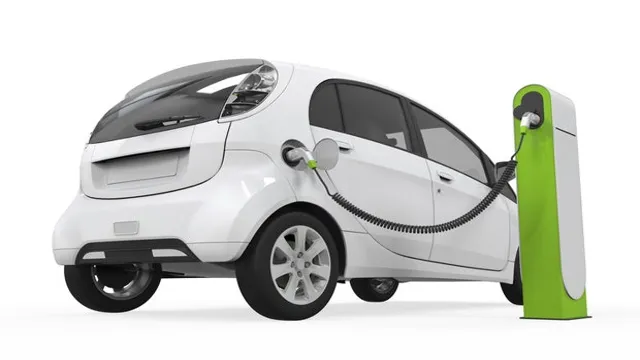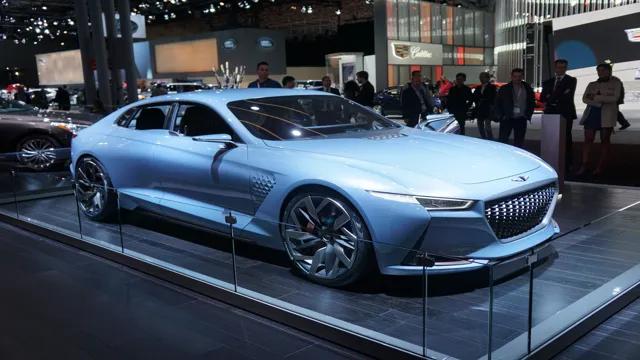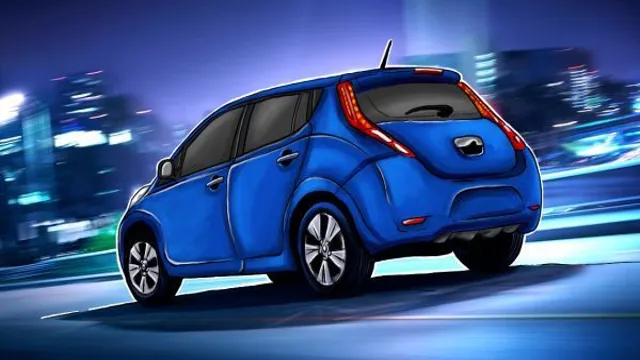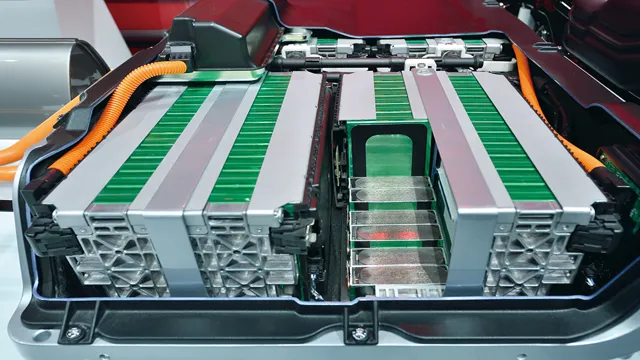Unleashing the Truth: The Suppressed Reality of Electric Car Technology
Electric Car Technology: Squelched As we continue to evolve and embrace innovative technologies, electric cars are gaining more popularity among car enthusiasts. However, the progress of electric car technology has been squelched by various factors. These futuristic vehicles have been created to minimize our carbon footprint and have a positive impact on our environment.
But, why has electric car technology been squelched and what are the obstacles it needs to overcome? The demand for electric cars in recent years has increased significantly, but the limitations of the technology have hindered its growth. One of the most significant obstacles is the cost of electric cars, which is typically higher than traditional cars. Another limitation is the battery life and range of these vehicles, which can deter potential buyers from investing in them.
The lack of charging infrastructure and the long charging times are also major obstacles in the widespread adoption of electric cars. Despite these obstacles, many automakers are investing in the development of better electric car technology. Engineers are working to improve the battery life and range of these vehicles, and some automakers are even offering fast charging solutions.
Governments around the world are also offering incentives to encourage the adoption of electric cars, such as tax credits and rebates. In conclusion, electric car technology has faced numerous challenges that have stopped it from fulfilling its potential. Yet, the demand for these eco-friendly cars continues to grow, and so does the need for innovation and progress in the field.
By overcoming these obstacles, electric cars could potentially replace traditional cars and revolutionize the transportation industry.
Introduction
It’s no secret that electric cars have struggled to gain mass appeal and widespread adoption in the automotive industry. Although the technology has been around for decades, there have been multiple factors that have caused its growth to be stymied. One such factor has been the suppression of electric car technology by the oil and gas industry.
This has been a crucial hindrance to their widespread implementation. Major players in the oil and gas industry have used their immense wealth to silence electric car innovations and keep fossil fuels at the forefront of the market. However, despite this obstacle, electric cars have continued to make steady and impressive progress.
The ongoing shift towards sustainability and environmentally conscious attitudes has brought them back into the spotlight, and they are gaining more attention and support. As the world continues to become more conscious of their impact on the environment, electric cars are sure to play a more prominent role in the future.
The Rise and Fall of Electric Cars
Electric Cars Electric cars have been around since the 19th century, but they did not become popular until the 21st century when advances in technology made them more efficient and practical. They were touted as the solution to global warming and the world’s dependency on fossil fuels. They offered the promise of zero-emission and a quieter ride.
For a moment, electric cars seemed like the future of transportation. But then came the fall. Range anxiety, high cost, and lack of infrastructure were among the reasons why electric cars lost their appeal.
In recent years, however, electric cars have been making a comeback. With the rise of Tesla and other automakers, the market for electric cars has grown, and so has the demand for them. Electric cars are becoming more affordable, and the charging infrastructure is expanding.
Despite the challenges, electric cars are here to stay, and they will continue to shape the future of transportation.
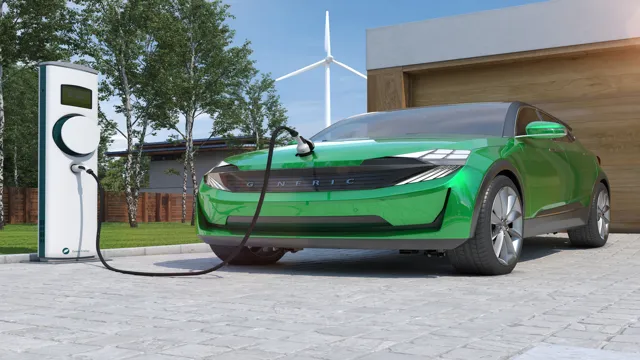
Political Factors and Opposition to Electric Cars
Electric cars have faced a fair share of opposition over the years, particularly in the political arena. While there are a number of factors that have contributed to this resistance, one of the most notable has been the influence of special interest groups, such as oil and gas companies, who stand to lose out as the world shifts toward more sustainable energy sources. These groups have often mounted extensive lobbying campaigns to push back against initiatives aimed at promoting electric and other alternative-fuel vehicles.
Some politicians have also been hesitant to embrace these technologies, either due to ideological opposition or concerns about the potential economic impact on their constituents. Nevertheless, as the environmental and economic benefits of electric cars become increasingly clear, it seems likely that these oppositional forces will eventually lose out to the growing demand for more sustainable transportation options.
The Benefits of Electric Cars
Electric car technology has been developing for decades, but it wasn’t until recently that the industry started to gain serious momentum. Unfortunately, the rise of electric cars has not been without controversy, as some have pointed out that the technology has been squelched by certain groups with vested interests in the traditional gasoline-powered market. Despite these challenges, however, there are numerous benefits to driving an electric car.
For one thing, they are much better for the environment, producing far fewer pollutants than traditional cars do. Additionally, electric cars offer significant savings in terms of fuel costs, as they can be charged for a fraction of the cost of filling up a gas tank. They also tend to be quieter and smoother to drive, with less vibration and less engine noise.
While there are still glitches to be worked out and challenges to be overcome, the potential benefits of electric car technology are simply too promising to be ignored.
Environmental Impact and Cost Savings
Electric cars have several benefits to both the environment and our bank accounts. One significant advantage of electric cars is that they produce zero tailpipe emissions, which allows for a cleaner environment and improved air quality. By switching to electric cars, we can help reduce the level of air pollution and contribute to a healthier planet.
Another benefit of electric cars is that they offer significant cost savings. Unlike gasoline-powered cars, electric cars are more energy-efficient and require less maintenance, which means lower operating costs. Additionally, electric cars can be charged at home or in public charging stations, offering an excellent opportunity for cost savings by avoiding trips to gas stations.
With an increasing number of charging stations and the government incentives for green driving, electric cars are becoming easier, cheaper, and more convenient to operate. Going electric is more than just a trend; it’s a sustainable way forward that provides significant environmental and financial benefits.
Technology Advancements and Innovation
Electric Cars Electric cars have been gaining popularity in recent years due to the various benefits they offer. One of the primary advantages of electric cars is that they are environmentally friendly. Unlike traditional cars that emit harmful pollutants into the atmosphere, electric cars produce zero emissions.
This means they don’t contribute to air pollution, which has a significant impact on public health and the environment. Additionally, electric cars are also cost-effective in the long run. They run on electricity, which is cheaper than gasoline, and they require less maintenance.
Although the initial cost of purchasing an electric car may be higher than that of a traditional car, the long-term savings on fuel and maintenance make up for it. Furthermore, electric cars are also quiet and smooth to drive. They offer a comfortable and hassle-free driving experience.
With advancements in technology, the range of electric cars has also significantly improved. Electric cars now have longer battery life, making them suitable for long-distance travel. In summary, electric cars offer various benefits that make them a sustainable and cost-effective option for modern-day transportation.
Consumer Demand for Electric Cars
Consumer Demand for Electric Cars Electric cars are becoming more popular as people look for environmentally-friendly modes of transportation. Not only are they the greener option, but they also offer various benefits to the user. One of the most significant benefits is the cost savings from fuel.
Unlike gas-powered cars, electric cars rely on electricity, which is cheaper, especially if charged during off-peak hours. Electric cars are also cheaper to maintain since they have fewer moving parts than gas-powered cars. Moreover, they produce less noise and vibration, creating a quieter and smoother ride.
However, one of the most significant concerns people have regarding electric cars is their range. With the improvement in technology, the range has drastically improved, and most electric cars can travel over 200 miles on a single charge. In conclusion, there are various benefits electric cars offer that outweigh their shortcomings, making them a viable option for anyone in the market for a new car.
The Future of Electric Cars
Electric car technology is not squelched, but rather it is advancing rapidly. As we look to the future, electric cars will become the norm on our roads as more and more car manufacturers start to embrace electric technology. Electric cars have been plagued with range anxiety and long charging times, but new innovations are being developed to solve these problems.
With the introduction of solid-state batteries, electric cars will be able to travel farther and charge faster, making them more practical for everyday use. Additionally, the development of wireless charging technology will allow drivers to simply park their car over a charging mat, eliminating the need for cords and cables. The future of electric cars looks bright, and we can expect to see more eco-friendly options on our roads in the years to come.
So, the electric car technology is far from being squelched, actually it is gaining more and more momentum everyday.
Positive Developments and Market Growth
The future of electric cars is looking brighter than ever. Positive developments in technology have led to improved battery life and charging capabilities, making electric cars a more practical choice for consumers looking to make the switch. In addition, governments around the world are implementing policies to encourage the adoption of electric vehicles, such as tax incentives and charging infrastructure investments.
These initiatives are driving market growth, and many experts predict that electric cars will become increasingly mainstream in the coming years. It’s like the electric car market is finally hitting its stride, much like a runner who finds their rhythm in a race. It’s an exciting time for the industry, and we can expect to see even more innovation and progress in the near future.
Challenges and Obstacles to Overcome
The future of electric cars is no longer a distant fantasy but a reality that is rapidly taking over the automotive industry. However, despite the significant progress made, there are still challenges and obstacles to overcome. One of the most significant challenges is the limited range of most electric cars, which has been a source of concern for consumers.
Although most electric cars can cover a reasonable distance on a single charge, it’s still less compared to traditional gasoline cars. Addressing this issue requires investing in better battery technology that can provide greater storage capacity and improve the efficiency of electric cars. Another obstacle to the widespread adoption of electric cars is the lack of charging infrastructure, particularly in rural areas.
Although there are many electric car charging stations in major cities, there are still few in rural areas. This makes it challenging for people living in such areas to own and operate electric cars. Governments and private organizations need to invest in the development of charging infrastructure to make electric cars more accessible to everyone.
Furthermore, the high cost of electric cars is still a significant barrier to adoption, despite the long-term cost savings of owning an electric car. Electric cars are still more expensive to produce than traditional cars, and this cost is passed on to consumers. However, as battery technology improves and economies of scale kick in, electric cars’ cost is expected to reduce over time.
In conclusion, the future of electric cars looks bright, but there are still significant challenges that need to be addressed. The limited driving range, lack of charging infrastructure in rural areas, and high cost of electric cars pose significant obstacles to widespread adoption. However, with increased investment in battery technology, charging infrastructure, and economies of scale, the cost of electric cars will decrease, and more people will adopt this greener and more sustainable mode of transportation.
Conclusion
It’s shocking to see the potential of electric car technology being squelched by short-sighted lawmakers and the powerful oil industry. Despite their efforts to keep us chained to fossil fuels, electric vehicles are gaining momentum and slowly but surely electrifying the roads. Let’s not get bogged down by their negativity and instead, spark a brighter future for our planet.
Because after all, in the race for sustainability, electric cars are definitely the front-runners.”
FAQs
Why was electric car technology squelched?
Electric car technology was squelched mainly due to a number of factors including the lack of infrastructure for electric vehicles, the cost of battery technology, and the influence of the fossil fuel industry on political decision-making.
What is the current state of electric car technology?
Today, electric car technology has advanced significantly and there are many models of fully electric vehicles available from major automakers. There are also more charging stations available, and the cost of battery technology has come down significantly, making electric cars more affordable for consumers.
How does the environmental impact of electric cars compare to traditional gas-powered vehicles?
Electric cars have the potential to be much more environmentally friendly than gas-powered vehicles because they emit significantly less greenhouse gas emissions and air pollutants during operation. However, the environmental impact of electric cars will depend on how they are charged and the source of the electricity used.
What are some of the benefits of electric cars for consumers?
Electric cars have low operating costs, are typically cheaper to maintain, and are eligible for tax credits and other incentives in many countries. They also offer a quieter, smoother driving experience and can be charged at home, reducing the need for trips to the gas station.

